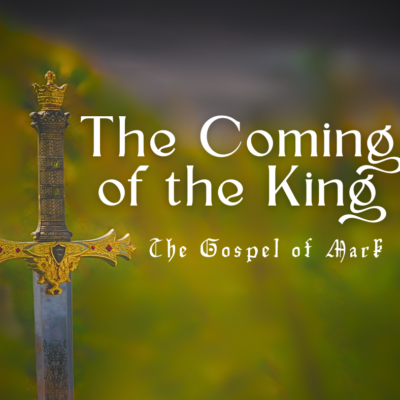Sermons by Rev. Tony Garbarino (Page 4)
Heavenly Father, we once more thank you again that you have given us this written word that you have preserved and inscripturated down through time. Lord, we pray that you would illumine our minds and our hearts as we hear it expounded, Lord, as we hear your voice speaking through it. Lord, we pray that…
Take your copy of the Scriptures now back in hand and turn to the New Testament. We’re reading, continue on, John 16, that we started last week. But we’re reading the same passage, the first half now and then the first half in a moment. First John, I’m sorry, not first John, John 16, the…
Turn now our Bibles for our New Testament reading to John chapter 16, John 16. We’re reading the first half, or the first part of this chapter, verses 1 to 15. John 16, starting in verse 1. And I’ll read 15 to 33 before the sermon. John 16 will be the sermon text. But for…
Take your copy of the scriptures now. In turn for our New Testament reading will be our sermon text this morning. Luke chapter 2, starting verse 21. And please, if anyone is able and it feels like they’re about to spontaneously combust, it gets kind of hard in here, hot in here, feel free to…
Take your New Testament now and turn, if you would, to the text for our sermon today, which will be from Luke chapter 2, starting at verse 8. Luke chapter 2, starting at verse 8. Once again, please, your attention, because this is the Word of God. And in the same region, there were shepherds…
Please take your copy of the scriptures. Now, if you would turn to our New Testament reading, Luke chapter 2. In chapter 2, we’ll resume our Mark study in a number of weeks, but there are times where it’s We have the collective focus on certain themes, and it’s good not to ignore those themes…
Take your scriptures once more and turn for our New Testament reading to our sermon text, Mark chapter 9. We’ll be finishing Mark chapter 9 this morning, starting verse 42. Yes, Mark chapter 9, starting verse 42. Please, once again, give your full attention. This is the Word of God. Whoever causes one of these…
Take your text now and turn to Mark chapter nine. This will be the text for our sermon this morning, Mark chapter nine, as we continue in the gospel of Mark. We’ll be beginning at verse 38. Mark 9, 38. Once again, please give your full attention. This is the word of God. John said…
Copy the scriptures, and turn, if you would, to the sermon text this morning, Mark chapter 9. We’re continuing in Mark this morning, chapter 9. And let’s ask the Lord’s blessing once more before we hear the word preached and read. Let’s pray. Heavenly Father, we do praise you once more for this, your word.…
Psalm 45, please give your full attention now. This is once more the word of God. The choir master according to the lilies, I’m a skill of the sons of Korah, a love song. My heart overflows with the pleasing theme. I address my verses to the king. My tongue is like the pen of…








